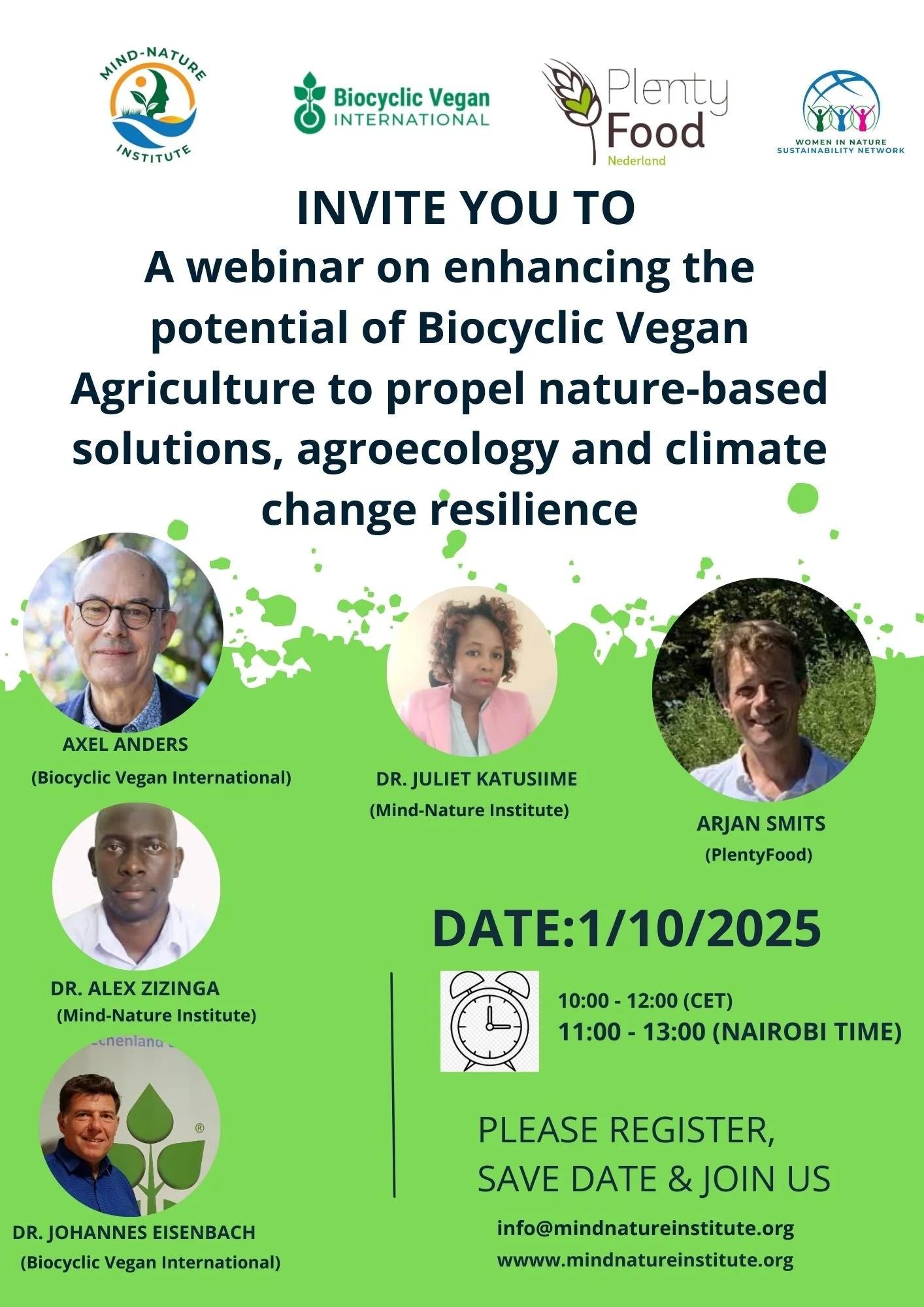Held a Webinar on Biocyclic Vegan Agriculture in Africa
We successfully held a webinar on Biocyclic Vegan Agriculture in Africa.
The theme was “Enhancing the potential of Biocyclic Vegan Agriculture in Africa to propel nature-based solutions, agroecology and climate change resilience”
The significance of the webinar lied in the fact that the global food and agricultural system is increasingly challenged by the need to adequately feed, compete on decreased land sizes, and rely on synthetic measures to supplement exhausted soils or manage pests and diseases.
At the production level, the food and agricultural system relies on various methods or principles. However, these measures also face a challenge of relying on animal husbandry for manure, and other animal-based opportunities, including those advanced as agroecological and or organic. Reliance on animal husbandry and byproducts, which is also responsible for an estimated 14% of all human-induced GHG emissions, or advancing agroecology in most communities where animal husbandry is reduced or in any case where manure is not well managed for possible agri-food production enhancement while controlling for GHG emissions, water pollution, and other health hazards is also challenging.
As such, Biocyclic Vegan Agriculture, an organic, plant-based farming system, bears much potential. This webinar is scheduled as one of the initiatives to demonstrate the capabilities, share experiences of application in Africa and Europe and also point out where effort is needed.
The webinar was co-organised by the Biocyclic Vegan International, Mind-Nature Institute and PlentyFood.
It took place on the 1st October 2025, at 11:00 – 13:00 (Nairobi Time) | 10:00 − 12:00 (Central European Summer Time).
During the webinar the key objectives of raising awareness, building capacity, strengthening the use plants and a plant -based food and dietary principle, sharing of experiences was achieved.
The webinar benefited from the rich experiences and capabilities of the presenters and participants alike. Attended by people in the civil society, academia and research, public agencies and individuals.
During the Webinar.


